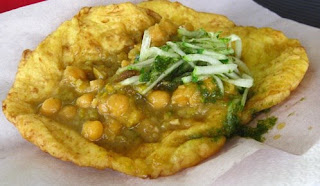Come Learn More About Our Independence
History of Jamaica
Indigenous origins
 |
| Indigenous People of Jamaica |
The Caribbean island now known as Jamaica was first settled by the Arawak and Taíno peoples, who originated in neighboring South America. Genoan explorer Christopher Columbus discovered Jamaica in 1494 during his second voyage to the New World, and claimed it for Crown of Castile. At this time, over two hundred villages existed in Jamaica, largely located on the south coast and ruled by caciques, or "chiefs of villages".
Spanish rule
The Spanish Empire began its official rule in Jamaica in 1509, with formal occupation of the island by conquistador Juan de Esquivel and his men. The Spaniards enslaved many of the native people, overworking and harming them to the point that many perished within fifty years of European arrival. Subsequently, the lack of indigenous labor was resolved by bringing in African slaves. Disappointed by the lack of gold on the island, the Spanish mainly used Jamaica as a military base to supply colonizing efforts in the mainland Americas.
British colony
After 146 years of Spanish rule, a large group of British sailors and soldiers landed in the Kingston Harbour on 10 May 1655, during the Anglo-Spanish War.[4] English, who had set their sights on Jamaica after a disastrous defeat in an earlier attempt to take the island of Hispaniola, marched toward Villa de la Vega, the administrative center of the island. Spanish forces surrendered without much fight on 11 May, many of them fleeing to Spanish Cuba or the northern portion of the island.
British colonial jurisdiction over the island was quickly established, with the newly renamed Spanish Town named the capital and home of the local House of Assembly, Jamaica's directly elected legislature.
Rebellions and brewing nationalism
 |
| The Morant Bay Rebellion |
Many former Spanish slaves used Anglo-Spanish war as a chance to free themselves and fled into the mountainous and forested regions of the colony to join the ranks of surviving Tainos. As interracial marriage became extremely prevalent, the two racial groups underwent assimilation. The escaped slaves and their descendants, known as the Jamaican Maroons, were the source of many disturbances in the colony, raiding plantations and occupying parts of the island's interior.[6] Imported African slaves would frequently escape to Maroon territory, known as Cockpit Country. Over the first seventy-six years of British rule, skirmishes between Maroon warriors and the British Army grew increasingly common, along with rebellions by enslaved Blacks.
These conflicts culminated in 1728, when the First Maroon War began between the English and Maroons. Largely owing to the easily defendable, dense forest of Cockpit Country, the British were unsuccessful in defeating the Maroons.[6] Following negotiations, the Maroons were granted semi-autonomy within their five towns, living under a British supervisor and their native leader.
Path to Independence, 1945–62
As World War II came to a close, a sweeping movement of decolonisation overtook the world. British Government and local politicians began a long transition of Jamaica from a crown colony into an independent state. The political scene was dominated by PNP and JLP, with the houses of legislature switching hands between the two throughout the 1950s.
 |
| Independence Celebration |
After Norman Manley was elected Chief Minister in 1955, he sped up the process of decolonisation via several constitutional amendments. These amendments allowed for greater self-government and established a cabinet of ministers under a Prime Minister of Jamaica.
Independence
 |
| Article in the Gleaner 1962 |
In the elections of 1962, the JLP defeated the PNP, resulting in the ascension of Alexander Bustamante to the premiership in April of that year. On 19 July 1962, the Parliament of the United Kingdom passed the Jamaica Independence Act, granting independence as of 6 August with The Queen as Head of State. On that day, the Union Jack was ceremonially lowered and replaced by the Jamaican flag throughout the country. Princess Margaret opened the first session of the Parliament of Jamaica on behalf of The Queen.[18] The first Jamaica Independence Festival was held.
Since 1962
Bustamante became the first Prime Minister of Jamaica and joined the Commonwealth of Nations, an organisation of ex-British territories.[19] Jamaica continues to be a Commonwealth realm, with the British monarch, Elizabeth II, remaining as Queen of Jamaica and head of state.
Michael Manley, the son of Norman Manley, who led what was largely the opposition party throughout the development of independent Jamaica, went on to become the fourth Prime Minister of Jamaica and maintained the People's National Party's status as one of two major political factions of the country.

 High Commission of Jamaica in Port-of-Spain
High Commission of Jamaica in Port-of-Spain 




